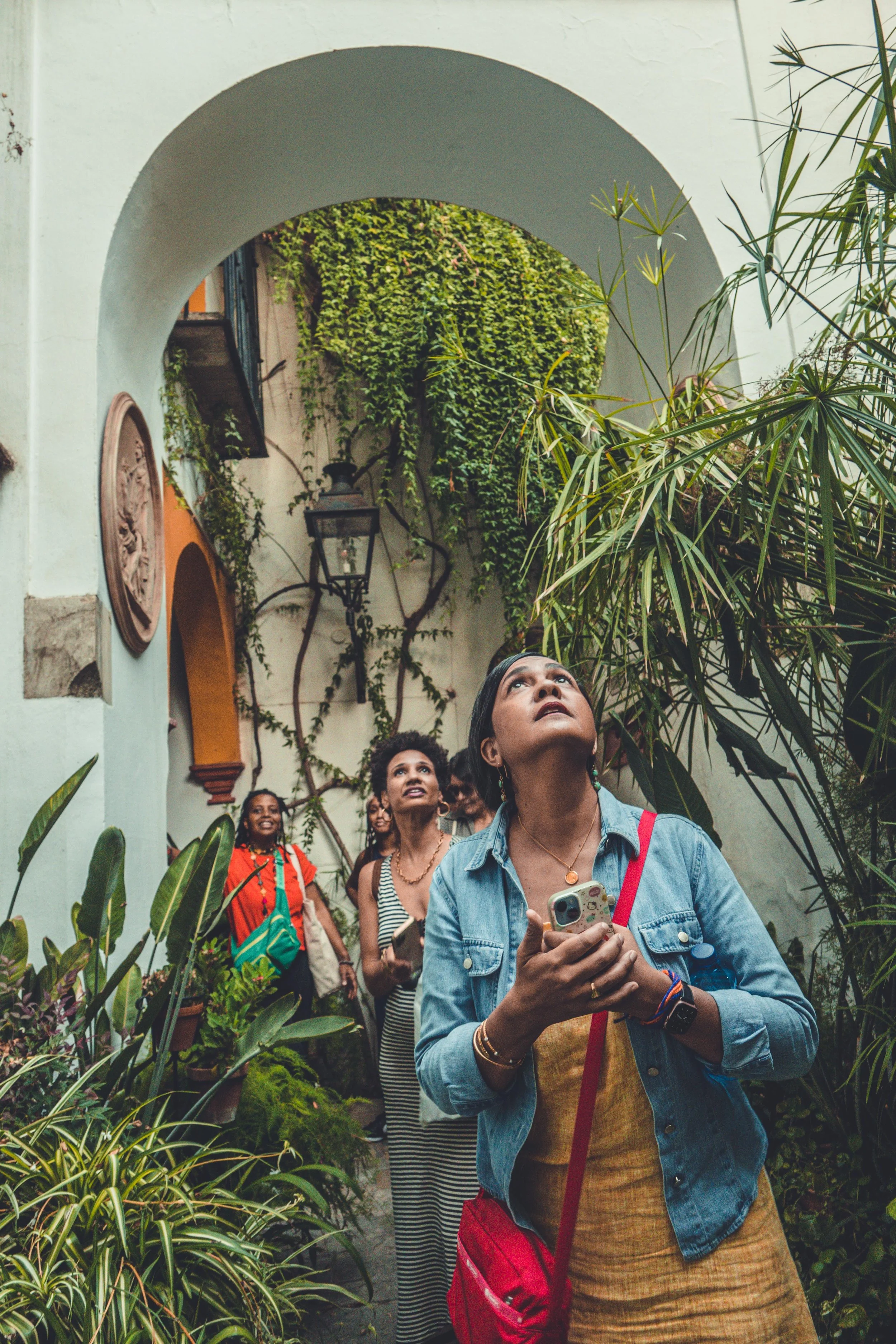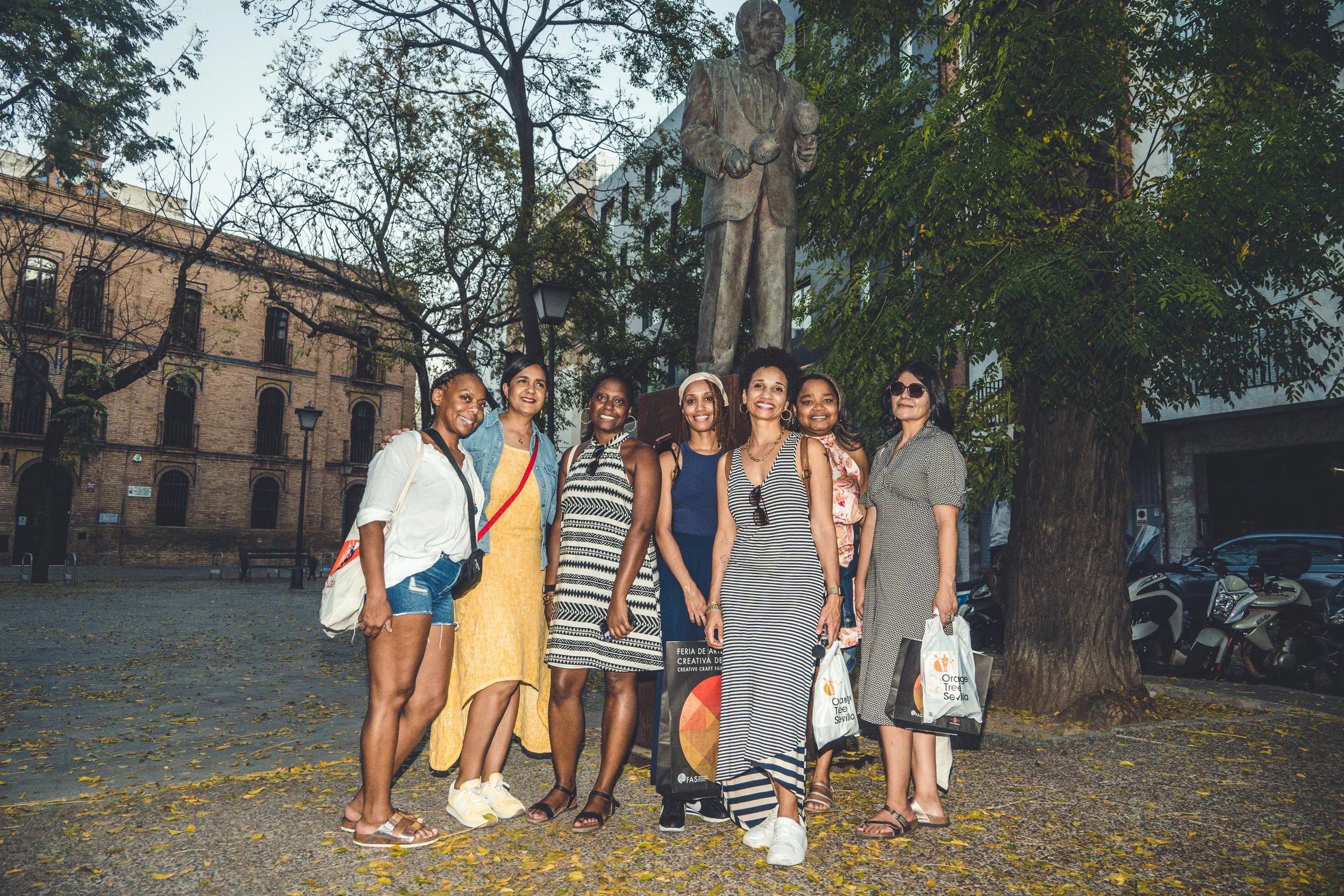A Week of Literary Magic: The First Reed, Write, & Create Retreat was a Smashing Success!
I don’t mean to brag, but I’m going to anyway. The first annual Reed, Write & Create Retreat was a smashing success! Eight incredible BIPOC women writers came to Sevilla, Spain to write with me, not knowing what they were getting into since this was my first time leading a retreat. Seven days later, they all left deeply bonded with their fellow sister scribes and having made tremendous breakthroughs on their writing projects. Words like “life-changing” and “transformational” were uttered as we hugged goodbye. Allow me to share what went down.
The Purpose and the Plan for the Retreat
“The retreat was an incredible experience. Lori has a unique gift of not only pulling your story out of you, but lighting a fire underneath you to make it better. She thoughtfully curated this retreat and I left inspired and a better writer. I didn’t know Lori before but now I’m one of her biggest supporters. My mind, body and soul were fed by the retreat. ”
When I first conceived of this retreat, I knew I wanted to create a sacred space for women of color to come together and write. I wanted to curate an experience where writers could tap into their creative spirit and be inspired by the rich, multicultural history of Spain, specifically Spain’s Black history. For over 20 years, I’ve been obsessed with uncovering the unique stories of Spain’s enslaved and free populations of the 16th -19th centuries, as well as the stories of Black American writers like Langston Hughes and Chester Himes, who produced some of their greatest literary works while in Spain. I wanted to create a writing retreat in a country that has become my second home so I could showcase the parts of Spain that I love, and that inspire me everyday to explore my literary gifts. I wanted to give that gift to other BIPOC women writers.
For this first retreat, writers were to come to Spain with a specific book project to work on. Some of the women were working on fiction, others on nonfiction. There was a poet in the group, and a there was a woman working on a guided journal for women. One woman had a contract in hand from a major publisher for her memoir, while another woman came only with a brilliant idea for the book she wanted to write and the determination to breathe it into existence. In other words, we had writers of every genre, experience level, and stage of completion. And yet everyone quickly bonded over their love of writing, reading, and the shared communion of identifying as a writer. It was beautiful to behold.
The field trip to Sevilla was like a walk back in time to the 15th century.
A Combination of Creativity and Writing
Because the group of writers was kept to a small size, everyone received personalized, one-on-one coaching from me, and each woman was paired with an accountability partner. Our days were organized around a specific schedule meant to maximize creative production. Mornings were spent on creativity exercises, craft talks, and writing. After a delicious meal prepared by our private chef, writers were encourage to indulge in a Spanish siesta followed by free time to read, write and/or create. Two afternoons were also spent on field trips to nearby cities where we learned about Spanish history and specifically in Sevilla, about Spain’s hidden Black history. The Black history component of the retreat was really meant to ground the writers in the sensory overload of Spanish culture, and to inspire them to look in unexpected places for story ideas.
In the evenings, the writers gathered again to workshop their work in a feedback circle. Each writer had a designated night to share and receive feedback from the group. These feedback circles were my favorite part of the retreat as I got to witness how smart and generous each woman was with her commentary. As writers, having this type of feedback from one’s peers is critical for growth and it also helps improve one’s confidence in sharing your work.
Not Everything Came Up (Smelling) Like Roses
Our retreat was held at a traditional, rural estate about 30 minutes outside of the city of Sevilla. Set amongst olive groves and citrus farms, we were most often awakened by the crow of roosters. The house was equipped with single rooms, ensuite bathrooms for some, and shared bathrooms for others. Two women shared a room, but otherwise, everyone had their own room. The house had a massive wrap-around porch with tables, chairs, and couches so writers could claim their own space to write. There were also two hammocks hanging right alongside the outdoor pool, which made for a delicious place to rest and relax.
The only problem with our secluded, country estate, we were to discover on our second night there, was that we were situated across the way from a pig farm. A pig farm that slaughtered pigs every night, causing the most offensive stench to roll across the area, blanketing the air with the smell of death! Every night the wretched smell rolled in at precisely 10pm. I was so grateful that the writers in attendance did not hold it against me that we were neighbors to a slaughterhouse, and in fact, by the end of the week, we’d crafted poems, short stories and a movie treatment all inspired by the horrible smell. See, that’s why I love creative folk.
What’s Next? More Community, More Retreats
The Sister Scribes in Sevilla.
On the last night of our retreat, we had our final feedback circle. Tears were shed, promises to keep writing were made, and jokes about horror movies and pig farms were shared. Plus, we had an impromptu birthday party for one of our attendees. By this point we were family. By this point, we were Sister Scribes in every sense of the word. And nobody wanted the party to end. I promised that there would be another retreat, and I promised that I would find a way to keep the group connected so we could continue to support one another with our writing goals. The plans are already in place for not one, but two retreats in 2024 and, best believe I am working diligently on creating a permanent community to hold space, nurture and support BIPOC women writers. I’m going for a Sisterhood vibe, channeling Toni Morrison and Alice Walker, champagne and gumbo!
(BTW, If you want to know more about the community I’m building for BIPOC women writers, and you have ideas about what you’d like to see in a community, sign up for the special Sister Scribe Stay-in-the-Know list and I’ll let you know what I’m up to. )
Overall, I am super pleased with the way the first annual Read, Write, and Create retreat turned out. It was life-changing for some of the writers and it was life-changing for me as well. I now know that leading literary retreats and community building are my core strengths as a literary activist, and I will continue to work on those strengths alongside my own writing.
To listen to to the podcast episode all about the importance of writing retreats, check out episode #19 on the Read, Write, and Create podcast.

